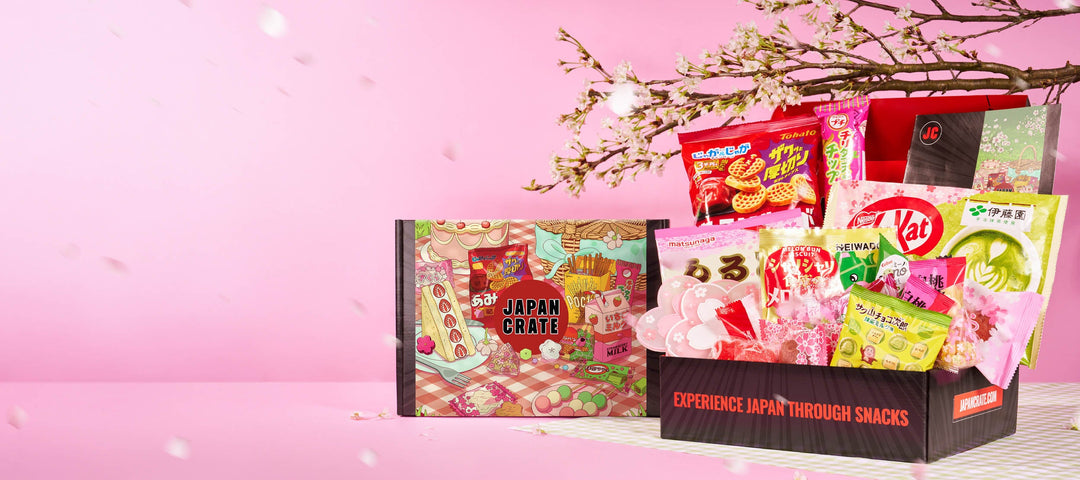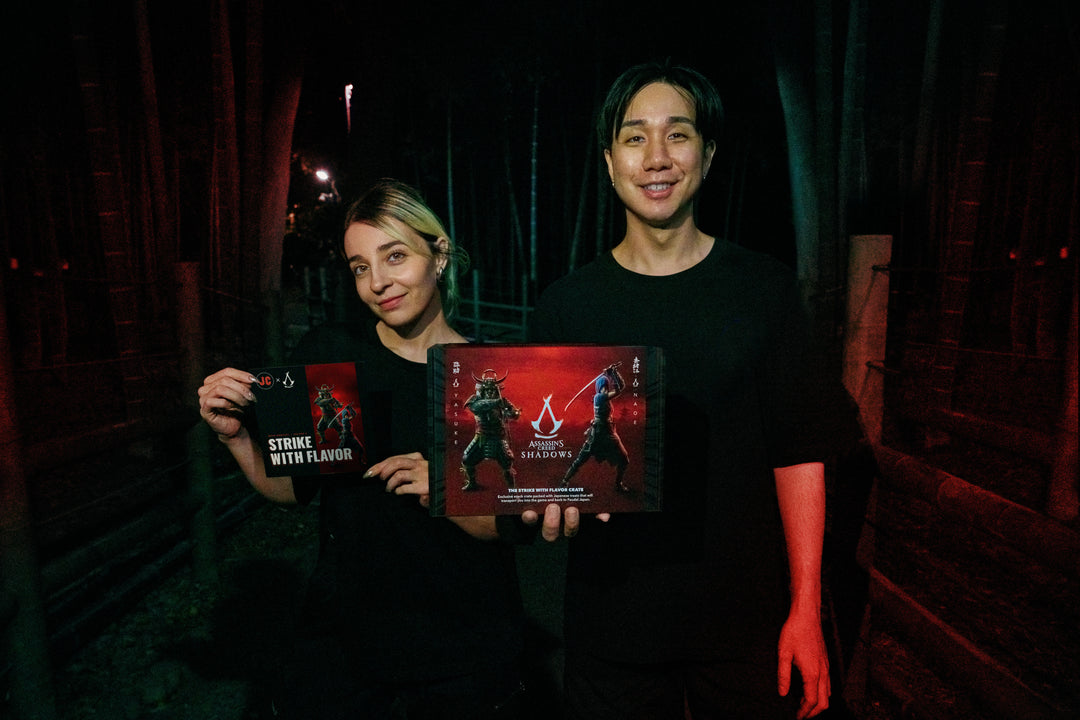White Day in Japan: Discover the Unique Valentine's Tradition and Its Cultural Significance
With Valentine's Day quickly approaching, you may have heard of White Day in Japan, leaving you wondering, "What is White Day?". To answer that, we must first explore February 14 (Valentine's Day) in Japan, which is celebrated differently than in the Western world. Valentine's Day in Japan is celebrated by Japanese women offering gifts to their romantic partners, coworkers, male friends, and other significant males. On this day, men get to sit back, relax, and enjoy being spoiled by the women in their lives.
Just like there is a day dedicated to women spoiling their men, there's also White Day on March 14. On this day in Japan, men spoil the women in their lives. This newer holiday was established in the 1980s, allowing men to reciprocate their appreciation for women after Valentine's Day. Let's dive into White Day, Japan's second Valentine's Day.
Introduction to White Day: Japan's Unique Twist on Valentine's Day
Valentine's Day, a primarily Western holiday until the 1950s in Japan, was the first step in establishing White Day. In the 50s, Japan began incorporating more Western products, foods, and culture into society, including Western holidays like Valentine's Day. This holiday slowly became popularized, leading to an answer day in the '80s (White Day), where men became the gift-givers.
What is White Day? Understanding the Tradition
Since it's popular to gift chocolate on Valentine's Day in Japan, Ishimura Manseido, a Fukuoka dessert maker, came up with a brilliant idea. Upon receiving a letter from a female customer complaining about how women were expected to give chocolates to males each year, Ishimura Manseido decided to create a new white marshmallow paste dessert. This treat included a decadent chocolate center. Ishimura Manseido declared the day (March 14) as Marshmallow Day. However, as more treats, like white chocolate, started being gifted, the holiday name shifted to White Day.

During White Day Japan celebrations, it is expected for the women who gave gifts to the significant males in their lives a month earlier to receive gifts. While Valentine's Day focuses on only gifting chocolates, it's common to receive an array of gifts on White Day. Japanese women can be gifted candy, jewelry, clothing, flowers, and even appliances on this holiday. It's important to note that the gifts given by men on White Day are expected to be 2-3 times the cost of what was received by women on Valentine's Day.
The Evolution of White Day Celebrations in Japan and South Korea
Over the years, White Day has become popular in other sections of Asia, like South Korea, China, and Taiwan. Originally, this holiday was meant for men to give their romantic partners white gifts. In the years since the holiday was established, the gifts have shifted and now include other items (like milk chocolates). Additionally, if a man is romantically interested in a woman, he can offer her a White Day gift and tell her his intentions when giving her the gift.
While White Day is credited to Ishimura Manseido, it did not become an official holiday until a few years after this confectionery created its marshmallow paste goodies. In 1980, the National Confectionery Industry Association began calling March 14 White Day. Without this push from the National Confectionery Industry Association, this holiday around giving gifts may not have become as popular as it did.
Giri Choco and Honmei Choco: The Types of Chocolates for White Day
Just like there are specific chocolates given to men on Valentine's Day in Japan to help differentiate between platonic relationships and a romantic interest, there are different types of chocolate to gift women on White Day. Those interested in participating in this holiday should pay attention to the types of chocolate gifted so the appropriate message is sent.
Giri Choco
This type of chocolate, also known as obligation chocolate) is meant to be given to anyone you don't have a romantic connection with. These chocolates are typically a cheaper type of chocolate. They're called obligation chocolates, as they are gifted from obligation, not love. These are typically given to coworkers or acquaintances.
Honmei Choco
Here's a chocolate you'll want to give to your true love (hence them being called true love chocolate). They are gourmet chocolates that are offered with a love letter. These are typically given to spouses, significant others, or someone you're interested in romantically.
There is also tomo choco, a chocolate given to friends, and jibun choco, purchased for oneself (a way to show self-love).
From Chocolates to Jewelry: The Expanding Range of White Day Gifts
As mentioned, the gifts have shifted to more expensive objects on White Day over the years. Originally, simple white sweets/confections were given during this holiday. However, that has shifted to jewelry, flowers, and other more expensive items.
Typically, smaller gifts, like cheaper chocolates, are still given to colleagues/acquaintances. The larger, more expensive gifts/chocolates are given to spouses/significant others. Most men look at getting kawaii gifts for their girlfriend significant other, like plushies, stationery, adorable clothes, and other similar items. In some cases, handmade items are given, which are often more well-received than store-bought gifts.
Since White Day gifts are meant to be 2-3x the cost of the received Valentine's Day gifts, offering gifts that are lower in cost is a signal of rejection. This could mean giving a gift of the same value as what was received on Valentine's Day or something with a lower value. In the case that a man might have a tight budget, he can make his intentions known by crafting a note that ensures his gesture is not taken as rejection.
The Art of Chocolate Making: A Popular White Day Activity
While store-bought sweets are often given, other gifts like homemade chocolates are a top choice, especially when you plan to give them to your sweetheart. Making a homemade gift shows you put care and effort into the event. Making heart-shaped chocolates at home for White Day has become so popular over the years that there are DIY kits available at places like Daiso (similar to the Dollar Store in the US).

Those creating homemade chocolates often purchase chocolate-making supplies like molds with cute designs, like teddy bears or hearts. They'll also purchase chocolate, sprinkles, nuts, and other items to decorate the chocolates. A popular homemade chocolate option is Nama Chocolate, a rich chocolate ganache made with cacao and heavy cream. For those in the US who want to participate in this holiday but include their significant other, there are DIY candy kits from Japan that can be purchased to make your own candy and gummy foods.
White Day Across Asia: Celebrations in Other Countries
Overall, the celebration of White Day in other Asia countries is quite similar. You'll notice a few small differences, though the day is typically seen as a holiday during which boys/men show their affection to women. Throughout most Southeast Asian countries, it's a holiday where males can reciprocate the gifts given to them by the females in their lives on Valentine's Day.
However, in certain countries, women may swap gifts with each other on White Day. While some people in Japan go on dates on White Day, it's more common to see couples in South Korea using the holiday for romantic excursions.
Gender Roles and Gift-Giving: How Japanese Men and Women Celebrate
Valentine's Day began with women purchasing chocolates for men since they were typically the ones in the stores already. Women were expected to be the caretakers of the family, doting on their husbands/children or significant others, while men worked and provided monetarily for the family. The creation of White Day shows how the roles of males and females in Japanese culture have been shifting through the years. This holiday has allowed women to feel more appreciated and has slightly shifted the caretaker role to men as well.
The Commercial Aspect: White Day in Japanese Department Stores
Like in America, the stores in Japan fill up with heart-shaped goodies, White Day-themed gifts, and more before the holiday. You'll see these items begin to show up in stores right around Valentine's Day, giving men plenty of time to shop for White Day. While the holiday originally revolved around gifting sweets, other gifts have been deemed appropriate, allowing even more stores and retailers to participate. You'll find items at locations like 7-11, Daiso, and higher-end shops. Many establishments will have pre-made gift baskets with romantic goodies (like White Day-themed plushies) to gift to loved ones.
In our online store, Sugoi Mart, you'll discoveran exclusive selection of Valentine's chocolates from Japan, featuring top brands that have collaborated with popular anime series and licenses. Expect packaging as charming and cute as you'd anticipate from Japanese products.

Don't miss the latest Starbucks Japan collection featuring mugs and tumblers inspired by Valentine's day.
White Day's Social Impact: From Teen Love to Social Obligation
Depending on how old someone is will change how they approach White Day. As teens, boys will typically only gift items to their crushes/significant others to show they feel the same way or as a sign of rejection. As an adult, there is an expectation that men will give gifts to all significant women in their lives, including spouses, bosses, and friends. However, since men are expected to reciprocate gifts to women after Valentine's Day, this holiday has become more of a social obligation than a celebration of love.
Unique White Day Celebrations: Marshmallow Day and Gyaku Choco
You can also tell how a man feels about a woman on White Day by the type of gift given, not just how much the gift costs. For example, giving a marshmallow means the man dislikes the woman. Cookies mean the man only wants to be friends, macaroons indicate the man considers the woman to be a special friend, and hard candies indicate a shared romantic interest.
Valentine's Day celebrations have been shifting in Japan to become more Western in recent years. It is becoming more popular for men to give Gyaku Choco (aka reverse chocolate) on Valentine's Day. Since men don't typically give gifts on this day, it's considered a reverse gift since it's not the normal tradition.
Reflecting on White Day: Significance in Japanese Culture and Modern Interpretations
Because of the changing world, including the increase in costs of items, there has been a decrease in people giving gifts on Valentine's Day and White Day in Japan. Additionally, since more people are working from home, fewer items are being purchased since they don't have coworkers/bosses they are seeing in person.
Another reason for the decrease in these gifts is that women feel less inclined to offer gifts on Valentine's Day since it feels forced for significant others and coworkers. Certain companies have even begun banning gift-giving on these two holidays, as there was immense pressure to purchase expensive gifts to impress other coworkers and bosses. These holidays are also seeing a decline in gift-giving because societal norms are changing, along with gender roles. With the shift to men beginning to purchase more gifts for Valentine's Day in Japan, like in Western culture, eventually, there may not be a White Day celebration.
Conclusion: Celebrating Love and Affection on White Day in Japan
Though Japan is going through changes that affect the popularity of White Day, it still remains an important holiday in the country. This day allows men to show their appreciation and let women know whether their feelings are reciprocated. It's a day filled with love, gifts, and romantic dates. If you choose to avoid obligation gifts, you can still celebrate White Day with your sweetheart with the Box of Love 2.0 Crate. This crate is filled with collectibles, snacks, sweets, drinks, and a love good luck charm for the ultimate gift box for your significant other. Or, practice self-love by gifting yourself this fun crate filled with Japanese goodies!

Author Bio









Leave a comment